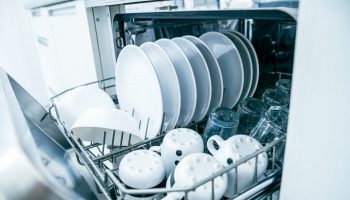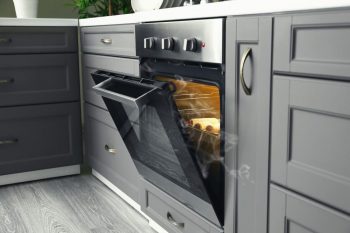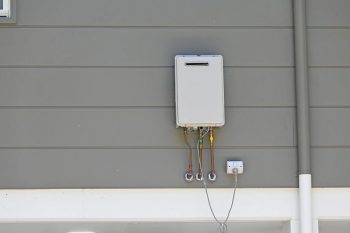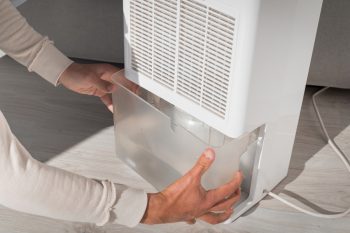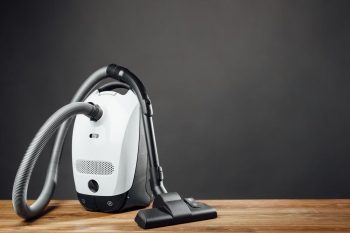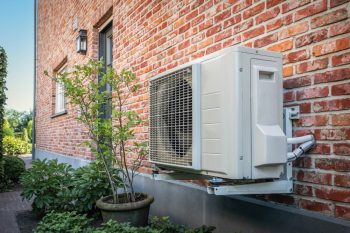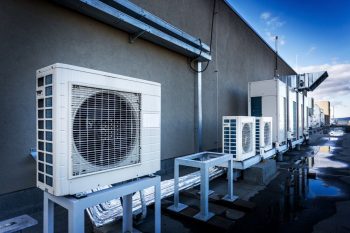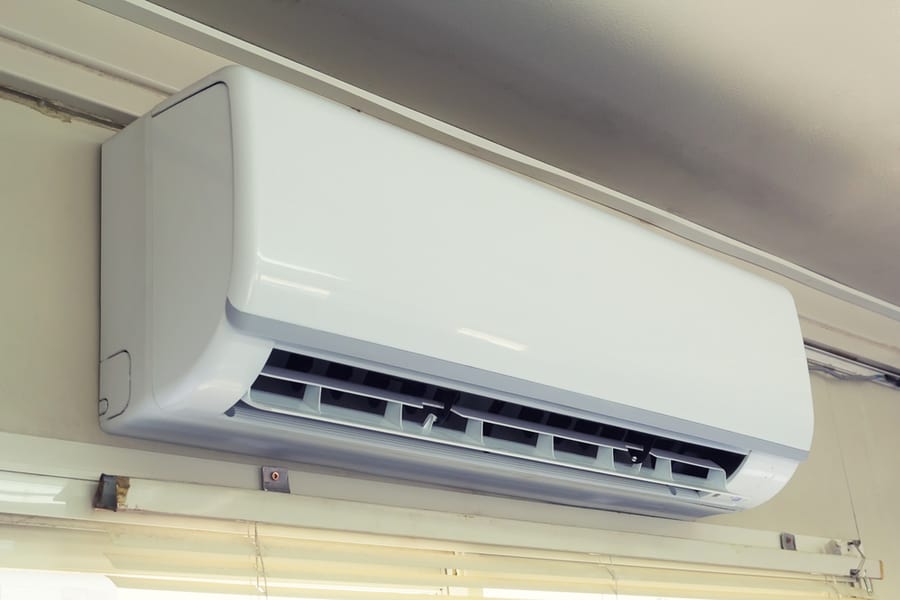
Does the air in your home feel moist and sticky, even with the AC running? Are you constantly wiping away the moisture on your skin and furniture?
If so, it’s time to look closely at your AC. It could be blowing out humid air, and that’s not a good sign.
This will make you uncomfortable, lead to health problems, and cause serious damage to your home, such as peeling paint and wallpaper, warping wood floors, and musty odors.
Here’s a quick overview of the key points discussed in this article:
- A clogged air filter, dirty condenser coils, improper settings, or inadequate ventilation usually cause humid air to come from your AC. To fix the issue, replace the air filter, clean the condenser coils, check the settings, and ensure proper ventilation.
- Consider replacing the old AC unit with a newer, more energy-efficient model to avoid ongoing issues with humidity.
- Seal leaky air ducts to prevent outside air from entering the home and conditioned air from escaping through the cracks.
- It’s also important to have an AC unit that is the right size for your home. An oversized or undersized unit will result in an inefficient cooling system and contribute to humidity problems.
- If the problem persists, it could be a sign of a bigger issue, like a refrigerant leak or faulty compressor. Contact a professional HVAC technician for further diagnosis and repair.
You can enjoy a cool and comfortable home all summer long by addressing these issues!
This guide will uncover the reasons behind this common AC problem and how to fix it. So you can enjoy a cool, dry, and comfortable home again.
The 7 Most Common Causes of AC Blowing Humid Air
If you’re experiencing a stuffy and humid atmosphere in your home, even with your AC on, it might signal that your AC is blowing humid air. Understanding the underlying causes can help you find a solution to the problem.
Here are the seven most common causes of AC blowing humid air:
1. Dirty Condenser Coils
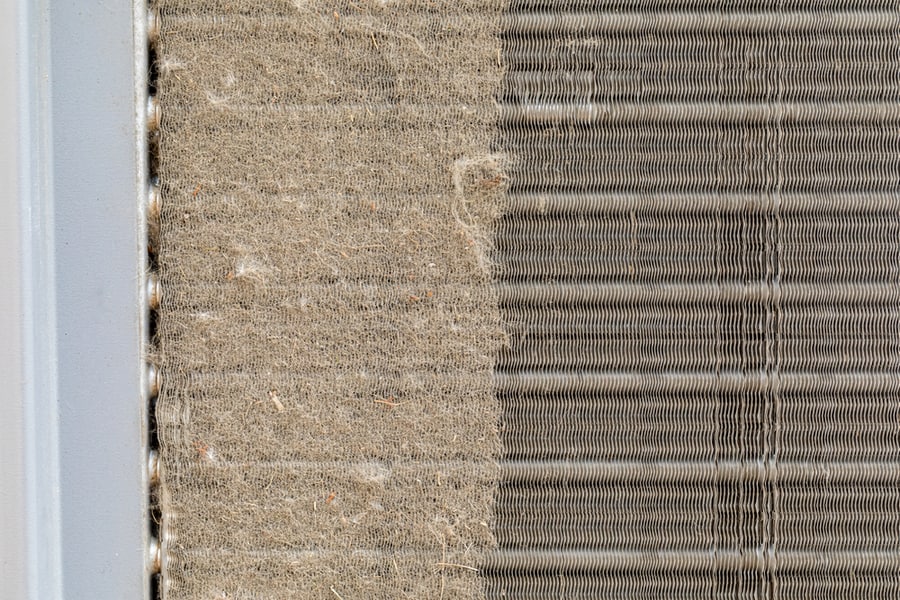
Dirty condenser coils can cause your home to feel humid even with the AC running. The coils are important for removing heat and moisture from the air inside your home and releasing it outside.
When dirt and grime build up on the coils, they can’t transfer the heat effectively, causing the AC to struggle to cool the air. This can result in a humid atmosphere and make you feel uncomfortable.
Not only does this lead to discomfort, but dirty coils can also make your AC run for longer periods, which can drive up your energy bills. Therefore, to keep your AC running smoothly and efficiently, it’s important to clean its parts and seek professional assistance, if necessary, regularly.
2. Frozen Evaporator Coils
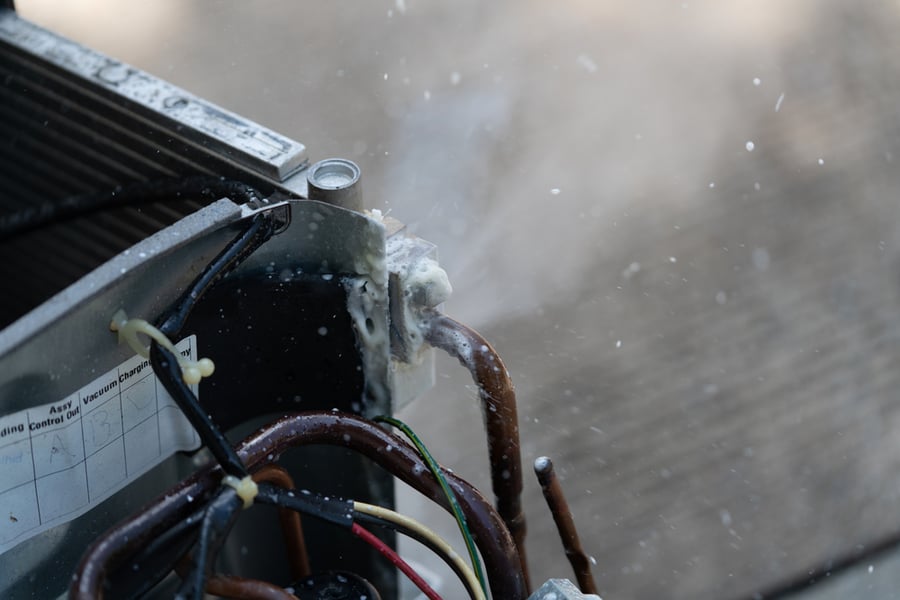
Another cause of AC blowing humid air is frozen evaporator coils. The evaporator coils absorb heat and moisture from the indoor air and use refrigerants to cool the air.
If the coils freeze over, the air conditioning system will not effectively cool and dehumidify the air, leading to humid air in the house.
To fix this issue:
- Turn off the AC and allow the coils to defrost.
- Next, check and clean the air filter and ensure the airflow is not restricted.
- Finally, contact a professional HVAC technician for inspection and repair if the issue persists.
It’s important to address this issue promptly, as it can cause more serious problems with your AC system if left unchecked.
3. Incorrect AC Settings
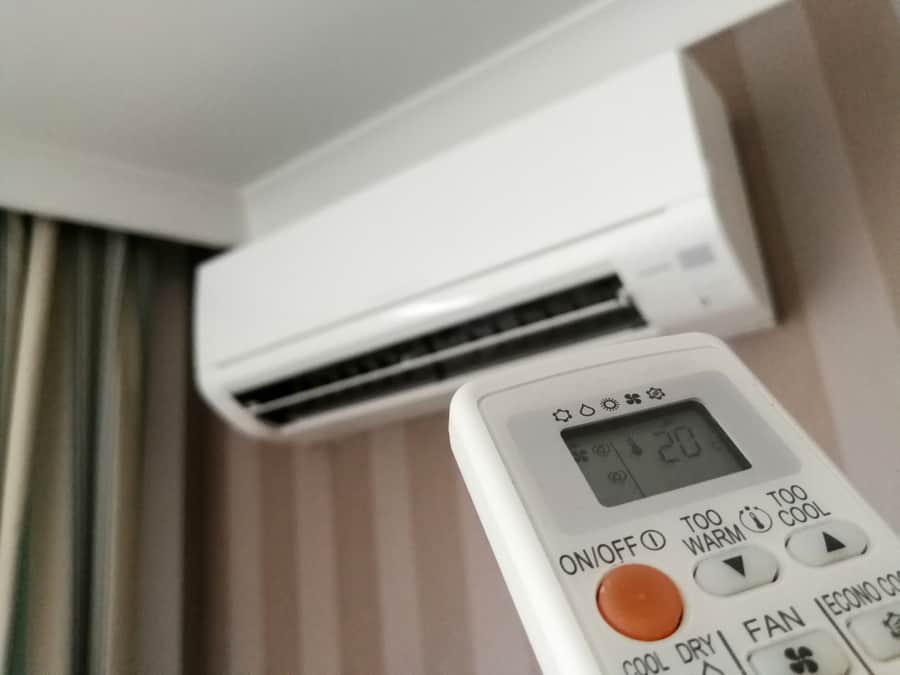
The settings on your AC can impact the humidity level in your home. Check the setting to ensure the air conditioner is “COLD” and not just the fan mode.
Also, verify that energy saver features or timers aren’t turned on, as this can prevent the AC from cooling effectively.
Running the blower fan when the air conditioner is off can also create a humid indoor environment. This is because the blower fan circulates air but doesn’t cool it, causing the air to feel muggier.
To avoid this, switch the fan setting to “AUTO” so it only runs when the AC unit is on.
If unsure about the settings, consult the owner’s manual or contact a professional HVAC technician.
4. High Outdoor Humidity Levels

The outdoor humidity level can also affect your home’s air quality and cooling. When the outdoor humidity is high, it can be harder for your air conditioner to lower the indoor humidity levels.
As the AC removes heat from the indoor air, it also removes some moisture. But if the outdoor air is already highly humid, it becomes difficult for the AC unit to keep up with the moisture levels in the indoor air.
Ensure your AC unit is properly sized and maintained to combat high outdoor humidity. Sealing air leaks and increasing ventilation can also help lower indoor humidity levels by reducing outdoor air entering your home.
Regular maintenance, including cleaning or replacing air filters, can also keep your AC unit functioning at peak performance, helping it to remove humidity effectively.
5. Old AC Unit
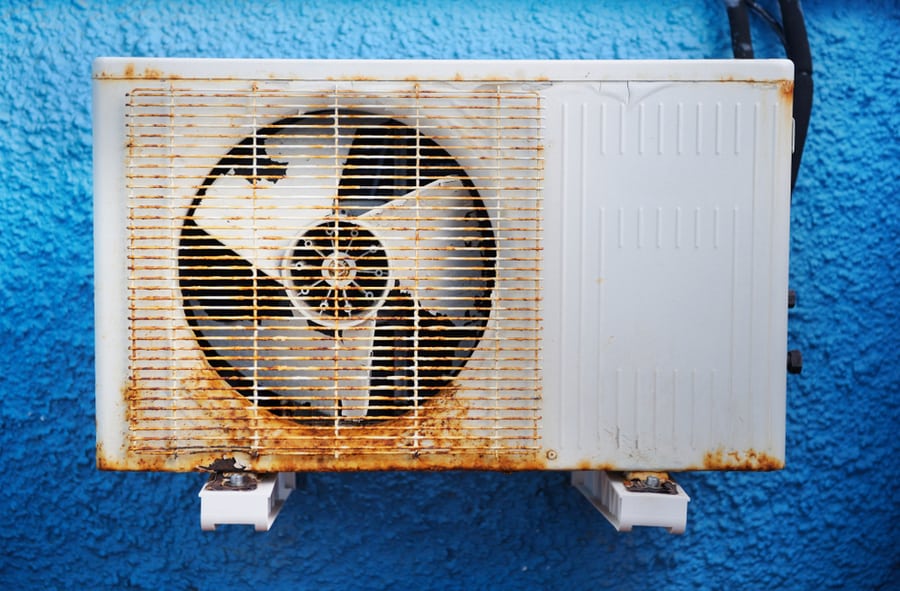
An old air conditioner unit may not function as effectively as it did when it was new, leading to increased humidity levels inside your home.
Over time, the unit’s efficiency may deteriorate, and parts may wear out, reducing its ability to cool and dehumidify your home.
If your AC unit is over ten years old, it’s time to replace it with a newer, more energy-efficient model. An outdated unit may consume more energy, leading to higher energy bills.
It may also be unable to keep up with the cooling demands of your home during the hottest months.
Upgrading a new air conditioning system can improve your home’s cooling and air quality while reducing energy costs.
6. Leaky Air Ducts
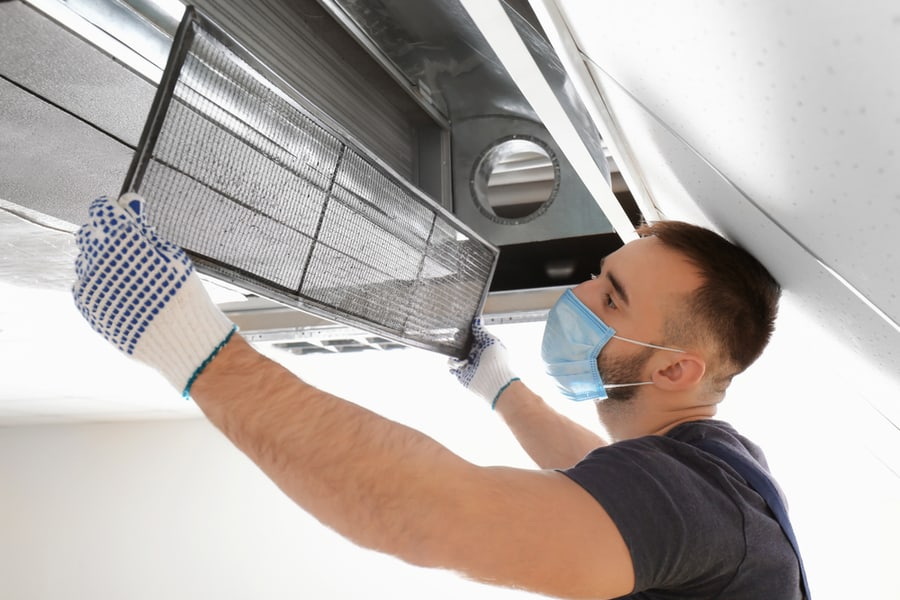
Leaky air ducts can also prevent your AC from working properly and cause humid air to circulate in the home. When air ducts leak, conditioned air can escape through the cracks, reducing the cooled air that reaches your home.
This can make it harder for the AC to reduce indoor humidity levels.
Additionally, damp air from outside can leak into the ducts and be circulated throughout your home, raising indoor humidity levels. To fix this issue, seal any air leaks in the ductwork.
Repairing the leaks can help ensure that the conditioned air remains in your home and doesn’t escape through the cracks. This, in turn, can help keep indoor humidity levels low.
7. Improper AC Size
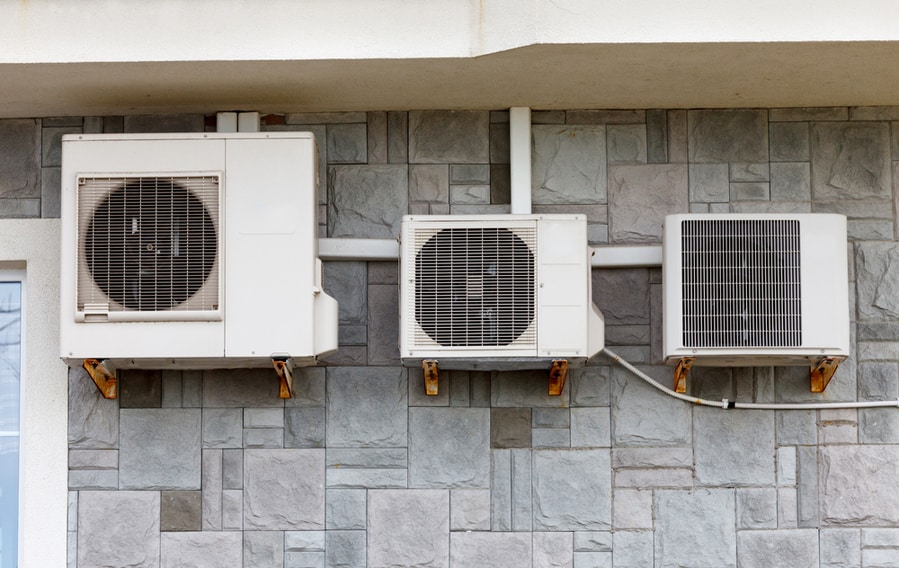
An oversized AC unit can cause problems controlling humidity levels in your home. This is because an oversized system frequently turns on and off, not running long enough to control temperature and humidity effectively.
Similarly, an undersized AC unit will also struggle to maintain optimal indoor humidity levels, as it will run continuously without being able to cool and dehumidify the air effectively.
Choosing the right sized AC unit for your home cooling needs is important to ensure optimal performance, reduce energy costs and maintain comfortable indoor air quality.
- Always hire a professional to assess your cooling system and determine the correct size for your home.
- Your AC should be serviced at least once a year to keep it in peak condition and reduce the risk of failure.
- Regular maintenance can also help identify minor issues before they become major ones.
Conclusion
High humidity levels can make your home feel humid and uncomfortable, even with the AC running. This article provides helpful tips to get your AC humidity levels down so you can enjoy a comfortable and healthy home environment.
Keep in mind regular AC maintenance, including changing air filters, checking refrigerant levels, and having a professional inspect your system, can help prevent humidity issues from occurring.
Lastly, ensure that your AC unit is the right size for your home to cool and dehumidify the air effectively. If you have any other questions, don’t hesitate to contact us. We’re here to help.

